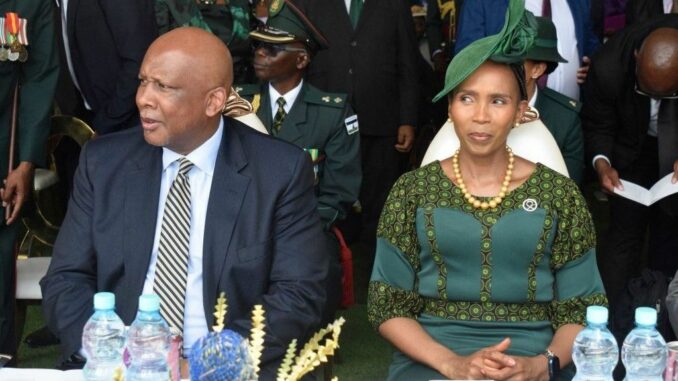
A political storm has erupted in Lesotho as opposition Member of Parliament Dr Tshepo Lipholo faces multiple criminal charges, including sedition and undermining the monarchy.
The charges stem from his public claims that King Letsie III and the Lesotho Government had effectively ceded national sovereignty by turning the country into a “10th province of South Africa.” The state alleges these comments, made between April and June 2025 on social media and radio, were not only seditious but also incited public unrest and sought to undermine the dignity of the royal household. Dr Lipholo’s bail hearing, initially scheduled for this week, has been postponed until 25 July 2025, and he remains in police custody.
Dr Lipholo, who leads the Basotho Covenant Movement (BCM), has previously stirred controversy by demanding the return of several South African provinces he claims were historically inhabited by the Basotho people. These include the Free State, parts of the Eastern Cape, KwaZulu-Natal, Mpumalanga, and the Northern Cape. His argument hinges on a 1962 UN resolution supporting self-determination for the people of Basutoland—a colonial-era name for Lesotho. The provocative declarations have not only landed him in legal trouble but have also drawn sharp criticism for allegedly destabilising national unity and insulting the monarchy by declaring himself the “paramount chief” of the country.
The unfolding case has also implicated others, including retired military officer Major General Samuel Makoro, who was arrested for allegedly supporting Dr Lipholo and leaking sensitive national information. Meanwhile, South Africa’s foreign affairs ministry, referencing the 1964 Cairo Declaration, has firmly dismissed any suggestion of border redrawing, reaffirming the African Union’s stance that existing post-colonial borders must be preserved to prevent continental discord. Regional analysts say Dr Lipholo’s campaign is largely symbolic and lacks both domestic and international support.
Despite his party holding only one seat in Lesotho’s parliament, Dr Lipholo continues to court attention by expressing his intention to bring the matter before the British Parliament, citing the UK’s colonial legacy and the 1966 granting of independence to Lesotho without correcting historical territorial imbalances. Legal experts and political commentators believe his assertions, while emotionally resonant for some Basotho, remain legally and diplomatically untenable under current African and international norms.
